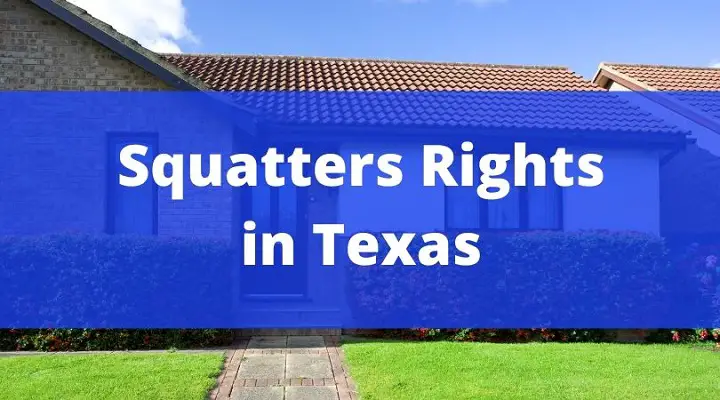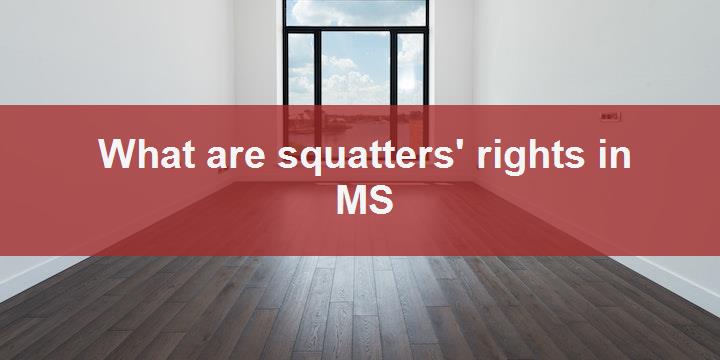Squatting refers to the act of occupying an abandoned, unoccupied or vacant space without the owner’s consent. While it is illegal in most instances, squatters’ rights laws vary from state to state. Wyoming, being one of the least-populous states in the US, has a relatively small number of cases of squatting. However, with the increased cost of living and housing, more people may resort to squatting to meet their housing needs. This article aims to explore squatters’ rights laws in Wyoming and how they apply to homeowners and squatters themselves.
Squatters rights in Wyoming are complex and vary depending on the circumstances. However, there are a few key things to keep in mind. First, in order to claim squatter’s rights in the state of Wyoming, you must have continuously occupied the property for at least 10 years without the owner’s permission. You also must have made improvements to the property and paid property taxes during that time. Additionally, it’s important to note that squatters rights do not apply to property that has active ownership. This means that even if a property owner is absent for a long time, you cannot take over the property and claim it as your own. Finally, it is essential to seek the advice of an experienced attorney to understand your rights and obligations as a squatter.
What is the squatting/squatter?
Squatting or being a squatter refers to the practice of occupying an empty or abandoned property without the owner’s permission. Often, this involves individuals or groups of people taking over unused buildings or land and making them their homes. While squatting is illegal in most countries, some proponents argue that it is a means of reclaiming unused resources and providing shelter to those who are homeless or unable to afford housing. Nevertheless, the practice remains controversial, with critics alleging that it leads to blight, crime, and undermines property rights. Some governments have taken steps to address squatting, including passing laws to criminalize the practice or providing legal avenues for squatters to gain ownership of the property they occupy.
What is an example of a squatter?
An example of a squatter is a person who occupies a vacant or abandoned property without permission from the owner or legal authority. Squatting is illegal in many countries, but some people still choose to do so as a means of obtaining housing. Squatters often live in poor conditions and lack basic amenities, such as running water and electricity. They may also face eviction at any time, as the property owner can legally remove them without warning. Squatting can also refer to individuals who occupy land illegally, such as in parks or public spaces. Overall, squatting is a controversial issue, with advocates arguing that it is a form of protest against high housing costs and insufficient housing availability, while opponents argue that it is a form of theft and disrupts property rights.
What is Adverse possession in Wyoming?
Adverse possession, also known as squatter’s rights, is a legal concept that allows a person to gain ownership of real property without purchasing it from the rightful owner. In Wyoming, adverse possession occurs when a person openly and continuously occupies another person’s land for a certain period, usually ten years or more. This possession must be hostile, meaning the person occupying the land does not have permission from the rightful owner. The concept of adverse possession in Wyoming is governed by state law and is dependent on the specific circumstances of each case. If a person satisfies the legal requirements for adverse possession, they may be able to acquire title to the property in question through a process called quiet title. However, it is important to note that adverse possession claims can be complex and are best handled by experienced real estate attorneys.
Is it legal to squat in Wyoming?
Squatting, or the act of occupying a property without the owner’s permission, is generally illegal in Wyoming. The state’s property laws include regulations against trespassing and unlawful occupancy, which make squatting a criminal offense. Moreover, Wyoming’s criminal code has specific provisions related to trespass on land, which means that those who squat on someone else’s land may face criminal charges. Additionally, if the squatters cause destruction or damage to the property, they may be liable for civil damages. Therefore, it is advisable for individuals to seek legal counsel before attempting to occupy a property in Wyoming without the owner’s consent.
Can police remove squatters in Wyoming?
In Wyoming, police have the legal authority to remove squatters as long as the property owner has filed a complaint regarding the unlawful occupation. The process for eviction may vary depending on the circumstances, but typically, the police will serve a notice informing the squatters to vacate the property within a designated period. If the squatters refuse to leave, the police may forcibly remove them and may charge them with trespassing. However, the eviction process may be complicated if the squatters have been living on the property for an extended period and can provide evidence of adverse possession. Overall, the police have the power to remove squatters in Wyoming, but the eviction process may require legal assistance from an experienced attorney.
How to evict squatter in Wyoming?
If you own a property in Wyoming and you want to evict a squatter, there are legal procedures that must be followed to make the eviction process valid. Firstly, you need to serve the squatter with a written notice to vacate the property. This notice should state the reasons for the eviction and give the squatter a certain time frame to vacate the property. If the squatter doesn’t leave voluntarily, you can file an eviction lawsuit with the local court. You need to provide evidence supporting your case and prove that you have the legal right to the property. If the court grants the eviction order, you will be given a ‘writ of possession’ allowing you to take back your property. It’s important to note that evicting a squatter can be a complicated and time-consuming process, and it’s advisable to enlist the help of a reputable attorney to guide you through the legal hurdles involved.
FAQ
Q: What are squatters rights in Wyoming?
A: Squatters rights, also known as adverse possession, is a legal concept that allows a person to take ownership of land or property after using it for a certain period of time without the owner’s permission.
Q: How long must a person squat on property before they can claim ownership in Wyoming?
A: In Wyoming, a person must occupy and use the land continuously for at least 10 years in order to claim adverse possession.
Q: Can a squatter claim ownership of any type of property in Wyoming?
A: No, squatters can only claim ownership of property that is not being used and is not being actively maintained by the rightful owner.
Q: Does a squatter have to pay property taxes on the land they are occupying in Wyoming?
A: Yes, a squatter is required to pay property taxes on the land they are occupying.
Q: Can a property owner in Wyoming evict a squatter?
A: Yes, a property owner can evict a squatter by serving them with a notice to quit and then filing a lawsuit for eviction if the squatter does not leave voluntarily.
Q: Are there any exceptions to the 10-year requirement for adverse possession in Wyoming?
A: Yes, if the squatter has been paying property taxes on the land they are occupying for at least seven years, they may be eligible for adverse possession after only seven years.
Sources
Wyoming Statutes Title 34 Landlord and Tenant Chapter 1 – Summary Proceedings
Wyoming Legislature – House Bill 426
Wyoming State Bar – Squatter’s Rights in Wyoming




